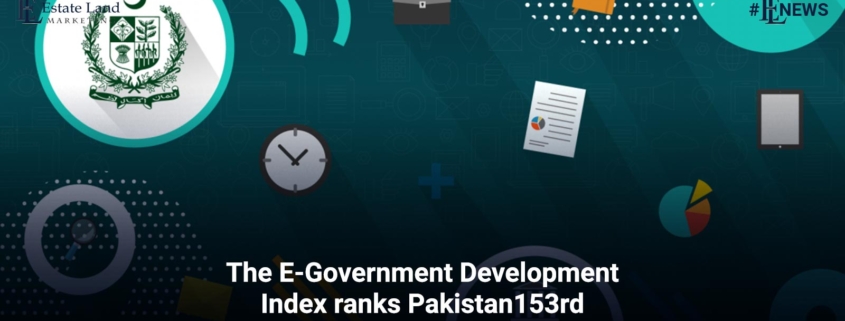The E-Government Development Index ranks Pakistan153rd
The E-Government Development Index ranks Pakistan 153rd out of 193 nations in the UN E-Government Development Index (EGDI) report for 2020, down from 148th in the previous information.
Previously, the UN EGDI just tracked e-government development, but it now includes parts of digital government development by ranking member states on three different indicators: Online Services Index (OSI), Human Capital Index (HCI), and Telecommunication Infrastructure Index (TII) (TII).
These necessitate a more in-depth analysis of the country’s digital transformation path and efforts to determine the causes behind the country’s low ranking and projected deterioration in 2020. In addition, potential options for improving Pakistan’s EGDI rating and, as a result, people’ interactions with the government through the use of technology should also be investigated.
Fragmented and siloed approach, lack of enabling telecommunication infrastructure and low affordability, digital skills gap, cyber security, data privacy and lack of trust, service design maturity, and limited citizen participation are among the factors afflicting Pakistan’s digital government development.
The paper also offers recommendations on how Pakistan might benefit from the experiences of other countries to speed its digital government transformation.
It entails developing a national digital government strategy, developing an action plan for implementing the road map, putting in place essential building blocks such as digital identity, payment, and a data exchange platform, and establishing a data and advanced analytics centre of excellence. In addition, develop a shared governance framework, including a portfolio, program, and project assurance framework, digital information management, IT spend control, procurement, data and technology standards, shared and shared systems, platforms, applications, and digital infrastructure, and centralized cross-government IT support.
It also suggests that current telecom policies and plans be reviewed, that public-private partnerships be developed, that a flexible regulatory regime is offered to investors and businesses in telecom services, that innovative practices be encouraged, that data-driven policy and decision-making be pursued, and that public access facilities be provided to address the accessibility-related digital divide, and that lifelong digital learning education be developed.
It also recommends establishing a digital service standard to ensure consistency and quality across services, transforming organizational structure and mindset, developing a forward-looking national citizen participation and engagement strategy and plan, developing and launching effective, user-friendly online participatory platforms and digital tools, incentivizing citizens to increase their involvement, and developing and establishing effective, user-friendly online participatory platforms and digital devices
Read more with EL news : The CDA board of directors has approved bids for 22 commercial plots




Leave a Reply
Want to join the discussion?Feel free to contribute!